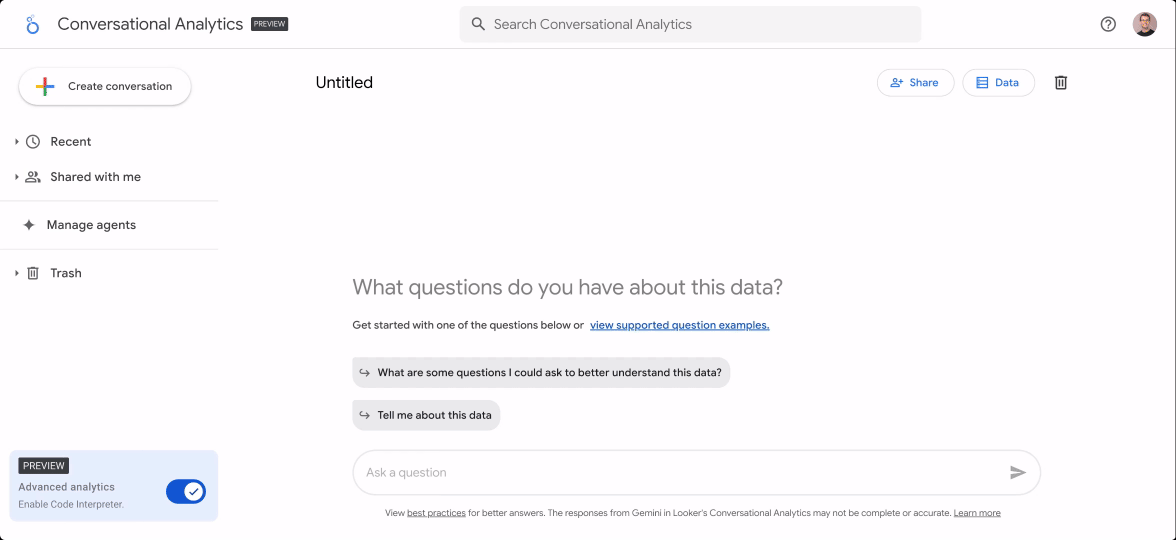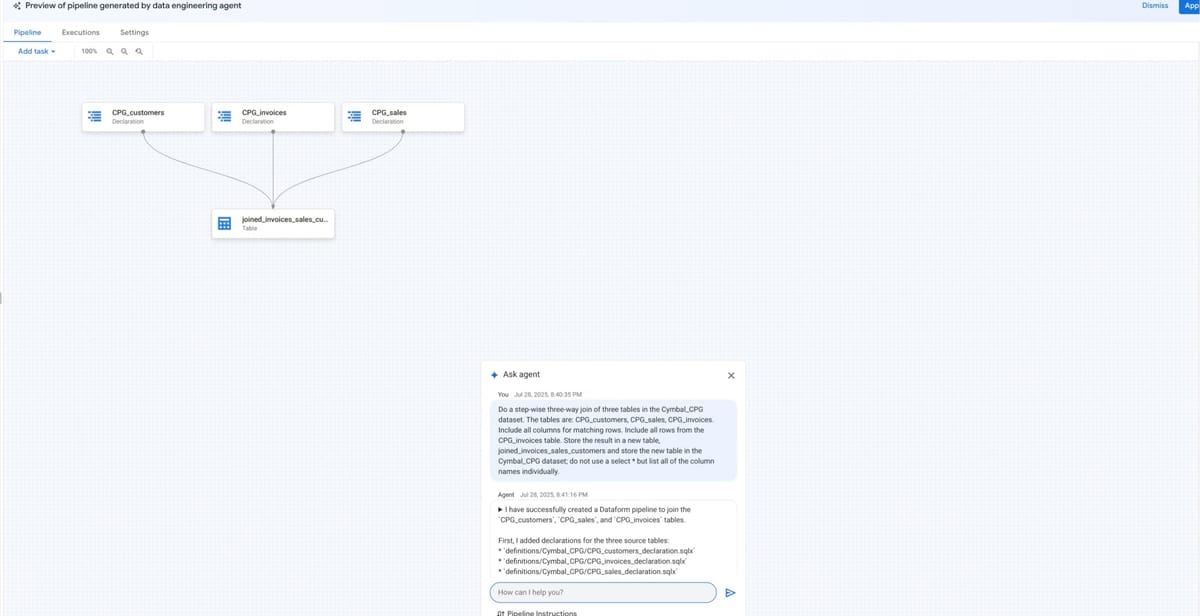Google just dropped a suite of AI agents designed to handle the grunt work that's been eating up data teams' time for years. The company announced six new "agentic" tools that can automatically build data pipelines, debug code, and even answer complex business questions without you needing to write a single line of SQL.
Key Points:
- Google launches AI agents in BigQuery, GitHub, and Spanner to automate data tasks
- New Gemini-powered APIs let developers embed conversational analytics into apps
- BigQuery now includes AI-native SQL and vector search for smarter queries
At Google Cloud Next Tokyo, the company dropped a whole toolbox of AI agents built to make life easier for data engineers, scientists, analysts, and developers.
Google says this is all part of the new agentic enterprise, where data shouldn’t just sit around waiting for people to query it. Instead, intelligent agents should meet you where you are, understand what you want, and do most of the heavy lifting for you.
Start with BigQuery. Google introduced a Data Engineering Agent that builds entire data pipelines from a simple prompt. Just say something like, “Clean this CSV, join it with sales data, and push it into BigQuery,” and it takes care of it. For more advanced workflows, the Data Science Agent inside BigQuery Notebooks can do end-to-end model building, complete with visualizations and reasoning.

For analysts and business teams, Google’s Conversational Analytics Agent got a major upgrade: it now includes a Code Interpreter that runs Python under the hood. That means you can ask complex questions like “Segment customers by behavior in Q2,” and it’ll deliver the code, the chart, and the insights—all within your enterprise’s secure data stack.

Developers aren’t left out. Google launched Gemini CLI GitHub Actions, an open-source AI agent that lives inside your repos. It can triage issues, review pull requests, or even be @mentioned to handle specific tasks. It runs in the background and plays nice with your stack, including Google Cloud’s secure Workload Identity Federation.
The real power move, though, is infrastructure. BigQuery now comes with an AI Query Engine, so you can run LLM-style queries inside SQL. It also supports hybrid semantic search, vector embedding generation, and a new columnar engine for Spanner that brings OLTP and OLAP closer than ever.
Google is also making these tools work with unstructured data — images, audio, video — not just traditional databases. The new Spanner columnar engine can run analytical queries up to 200 times faster, while BigQuery gets multimodal tables that can store and query different data types together.
The company isn't stopping there. It's launching APIs so developers can embed these conversational analytics capabilities into their own apps, and it's embracing open standards like the Model Context Protocol to play nice with other AI tools.
The agents are rolling out now, with most features available at no extra charge within existing BigQuery and Looker pricing.

